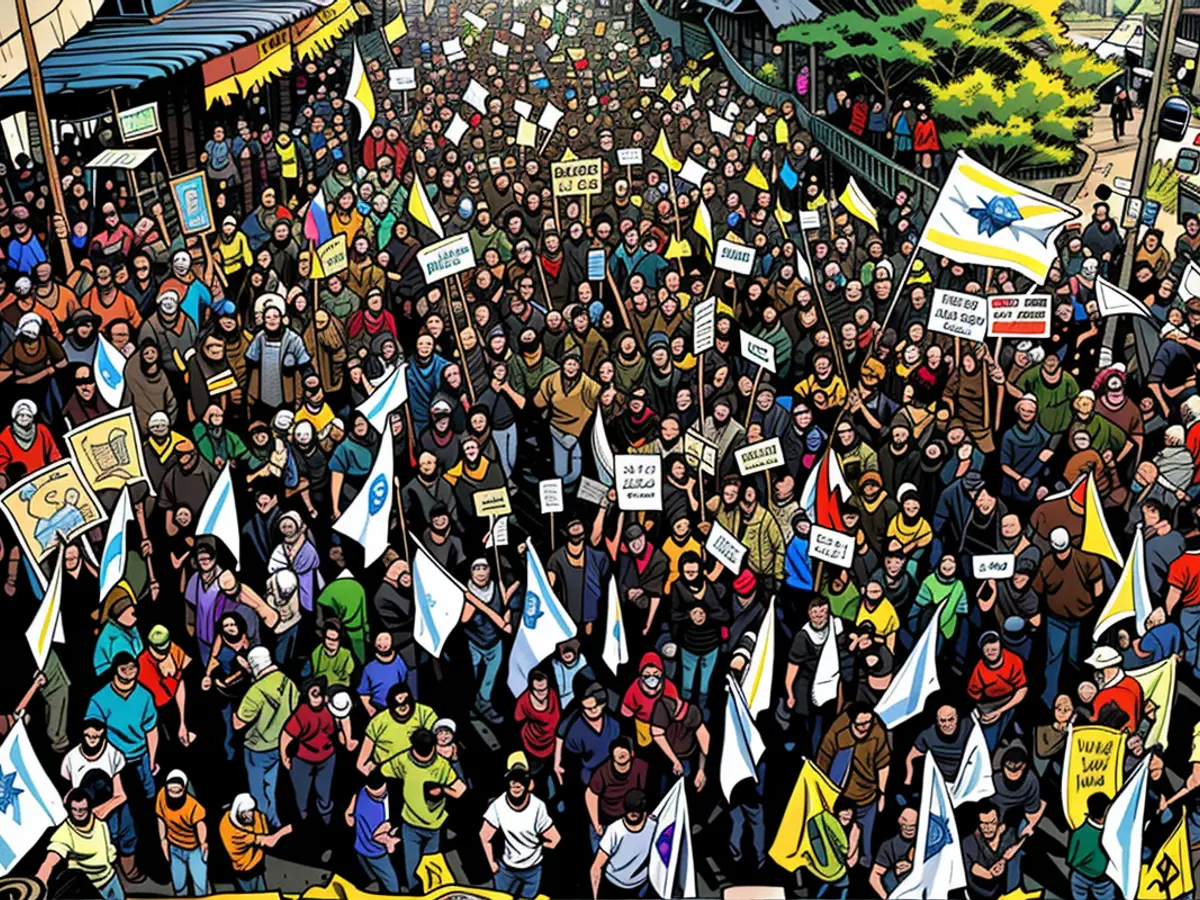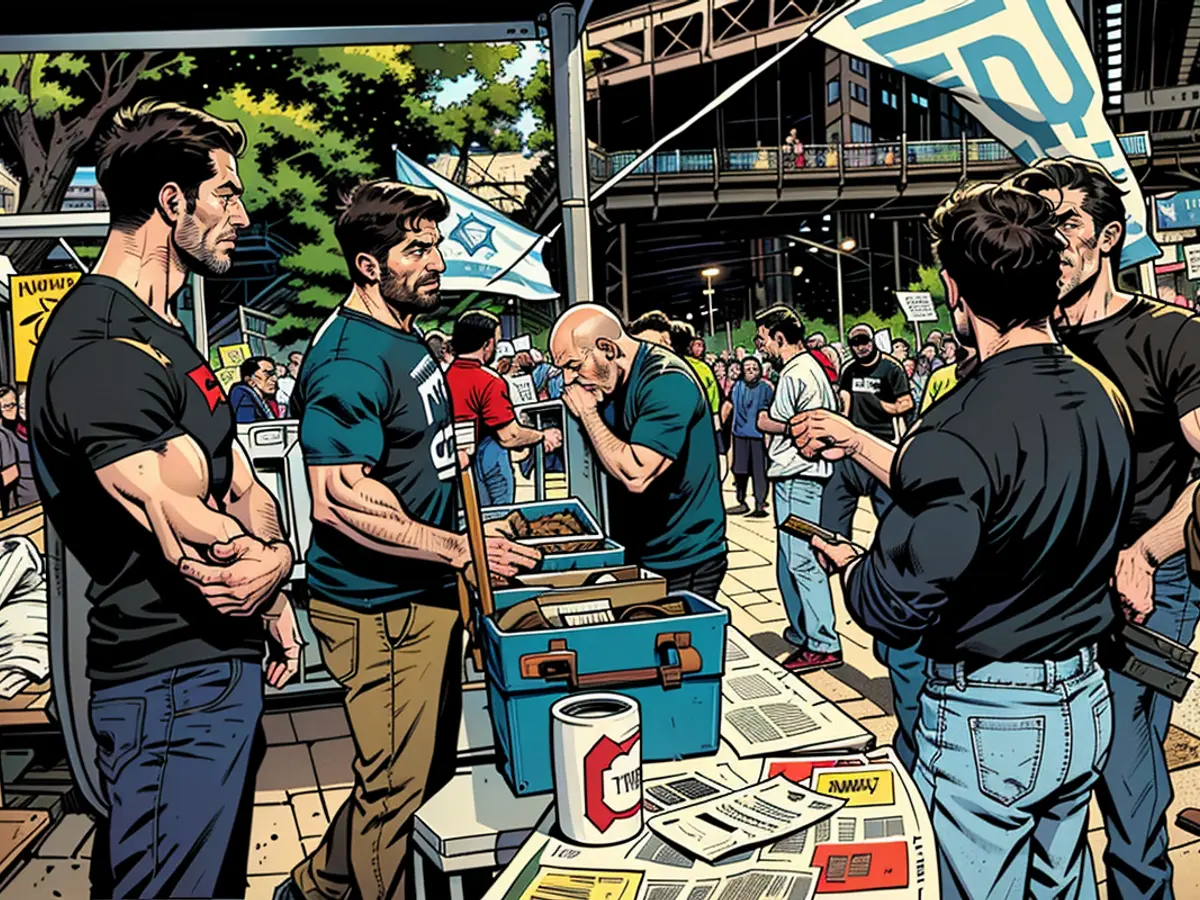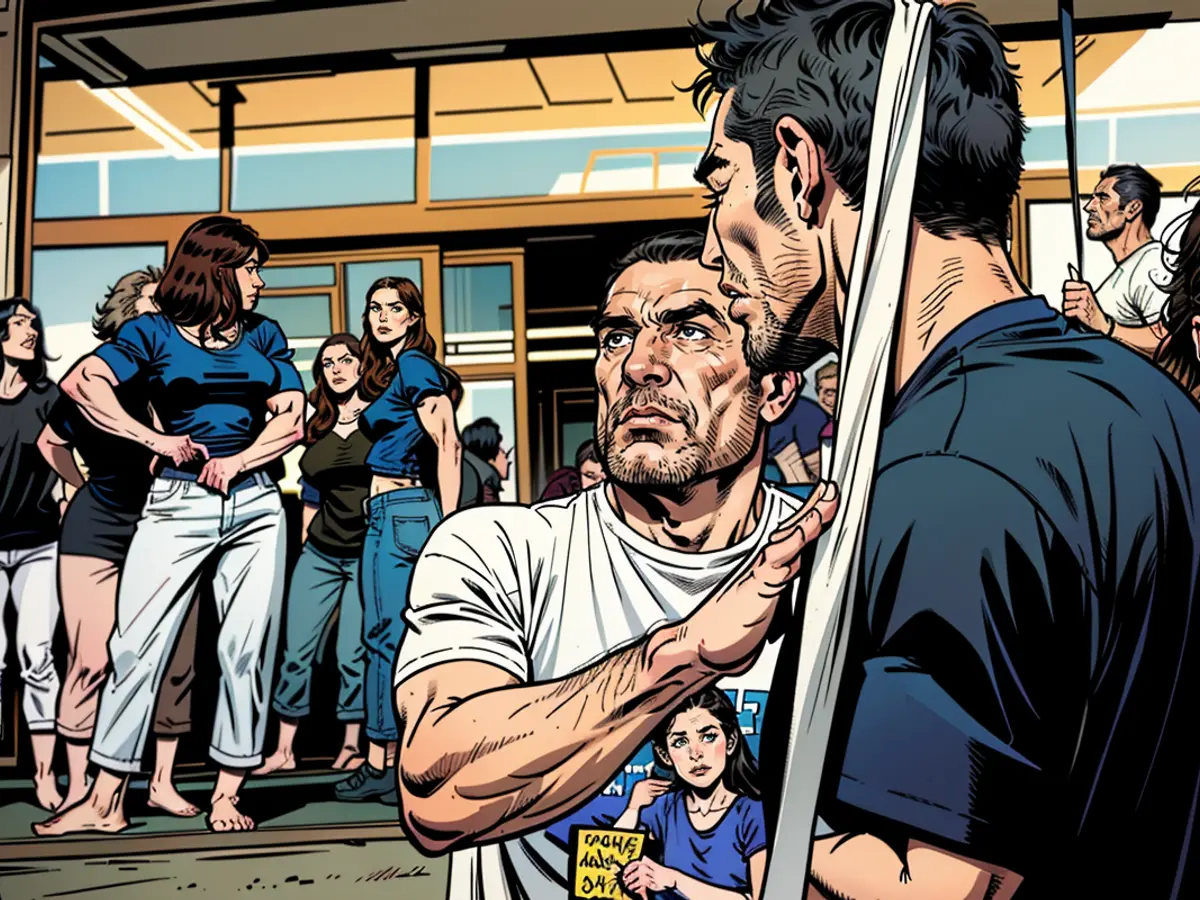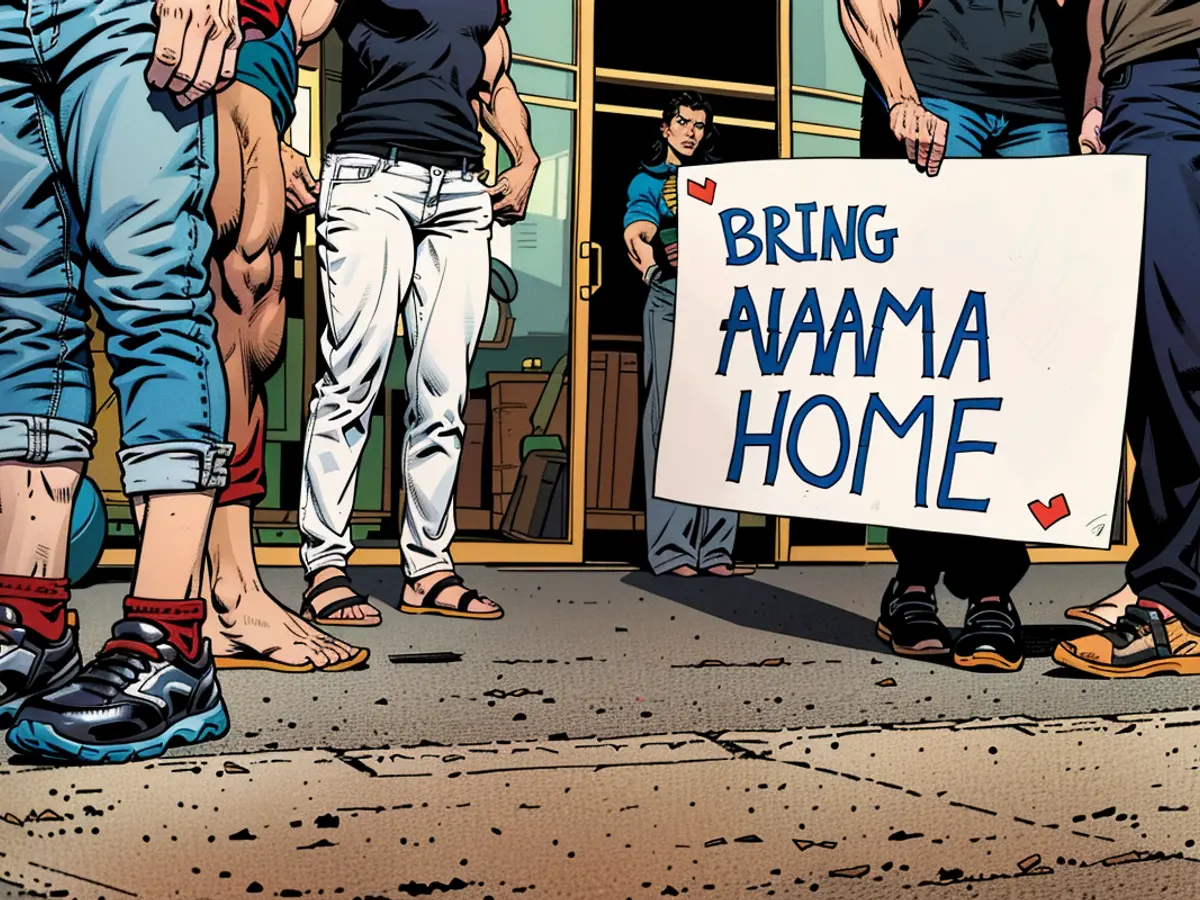Following Sinwar's demise, Israeli residents urge Netanyahu to utilize this opportunity and negotiate a truce with Hamas.
Mass gatherings of demonstrators popped up throughout various cities in Israel on Saturday, all demanding Prime Minister Bibi Netanyahu and his administration prioritize the recovery of the captives above all else. Critics believe the government has yet to make this a top priority.
Sinwar, a staunch figure with no interest in negotiating with Israel, has been accused by the US, which mediated discussions in Cairo, of being one of the main barriers to reaching a truce agreement.
His demise could potentially lead to a truce agreement, but Netanyahu will play a significant role in making this happen.
Netanyahu has been juggling the demands of his far-right coalition associates, who are vehemently opposed to any negotiations with Hamas, with the mounting pressure from Israel's Western allies, including the US, who urge him to strike a deal and end the conflict in Gaza.
The prime minister is now faced with another wave of large-scale protests pushing him to act.
Eran Nissan, an activist who has been attending anti-government protests religiously for months, joined the gathering in Tel Aviv on Saturday. He believes a majority of Israelis want Netanyahu to negotiate.
“There’s a strong consensus within Israeli society on this, 105 hostages have already been brought back through a deal,” he said, referring to the week-long ceasefire and hostage exchange that took place in November.
However, there are still 101 hostages held in Gaza, according to Israeli authorities. Roughly one-third of these hostages are believed to have perished.

Nissan suspects Netanyahu's government is prolonging the conflict.
“A ceasefire is not in their interest because they know that once the war is over, they will have to answer questions about the security lapses that led to the October 7 attacks, and there will be a national inquiry, and there will be a demand for elections, and in any poll you see right now, they will be challenged,” he said.
Netanyahu has yet to outline a strategy to capitalize on Sinwar’s death, stating only that Israel will continue to fight “until victory.”
“This is the beginning of the day after Hamas. Evil has suffered a heavy blow, but the task before us is not yet complete,” he said.
For Yoni Levy, the only victory would be the return of his daughter Naama from Gaza. She was serving as a lookout, observing Gaza from the Nahal Oz military base, when Hamas stormed the area and abducted her.
Images of her being loaded onto a truck, barefoot and severely beaten, her gray sweatpants soaked in blood, became emblems of the brutality of the October 7 attack.
Levy considered Sinwar’s death an opportunity for the government to act.

“We killed this terrible man, but we should not shift our focus,” he told CNN.
“This is the time for the prime minister to take the deal, even if we need to pause the war for a while, even if we have to release some of the murderous people on their side, now is the time to take additional steps that we did not agree on before,” he said.
Levy spoke to CNN last week at Hostages Square – the plaza outside the Museum of Art in Tel Aviv where families and supporters of the captives held in Gaza have been meeting nearly every week since the October 7 attacks.
This particular protest was special for Levy. Dozens of women, who either knew Naama or served in a similar role, gathered at the square to call for her release. They wore the same clothes as Naama did on October 7 and used red paint on their bodies to symbolize the injuries she sustained during the attack.
The woman who came up with the idea, Amit Frid, said Naama should have been home already.
“She should have been home the day after the attack, she should have been home yesterday, today, tomorrow,” she told CNN.
When Hamas confirmed Sinwar’s death on Friday, the group said it would not release its remaining captives unless Israel ended the war, withdrew completely from Gaza, and freed Palestinian prisoners. Similarly, Netanyahu also vowed to carry on fighting.

However, in a subtle hint that he is open to negotiations, shortly after Sinwar’s death was announced, Netanyahu made a direct offer to anyone holding captives in Gaza, guaranteeing freedom to those who handed over the captives to Israel.
Shira Efron, a security expert from the Israel Policy Forum, said the window of opportunity to act might be small, given that Hamas is expected to appoint a new formal leader soon.
“Terrorists are relatively interchangeable. You always find new ones,” she said, adding that Sinwar’s younger brother Mohammed, a hardliner believed to be as ruthless as Yahya, is among the leading contenders for the position of the new leader.
She urged Israel to quickly identify whom to engage in talks and provide a safe avenue for those wishing to negotiate.
“Let’s say that someone is convinced that this is the time to lay down their arms and give in, or provide information about a hostage in exchange for amnesty or a cash reward, who do they even call now?,” she asked.
Some of the hostages may not even be in the custody of Hamas, having been taken by other groups and individuals, making this a critical time to appeal to these individuals.
Over the weekend, the Israeli military began dropping leaflets featuring a photo of Sinwar’s lifeless body in Gaza, promising safe passage to anyone who aids in returning the captives.

Nearby, a shout echoed: "Sinwar ruined your existence... Hamas will no longer control Gaza. Eventually, the chance is here for you to be freed from its oppressive rule. Those who surrender their weapons and restitute the kidnapped individuals to us, we'll enable them to depart and live in tranquility."
The Middle East situation, with Israel at its heart, is a topic of great concern for the world. The international community is closely watching Netanyahu's actions regarding the captives held in Gaza.
Despite the demise of Sinwar, the main contradictory forces in Israel's government, Netanyahu's coalition associates and Western allies, continue to push for different approaches towards Hamas.







